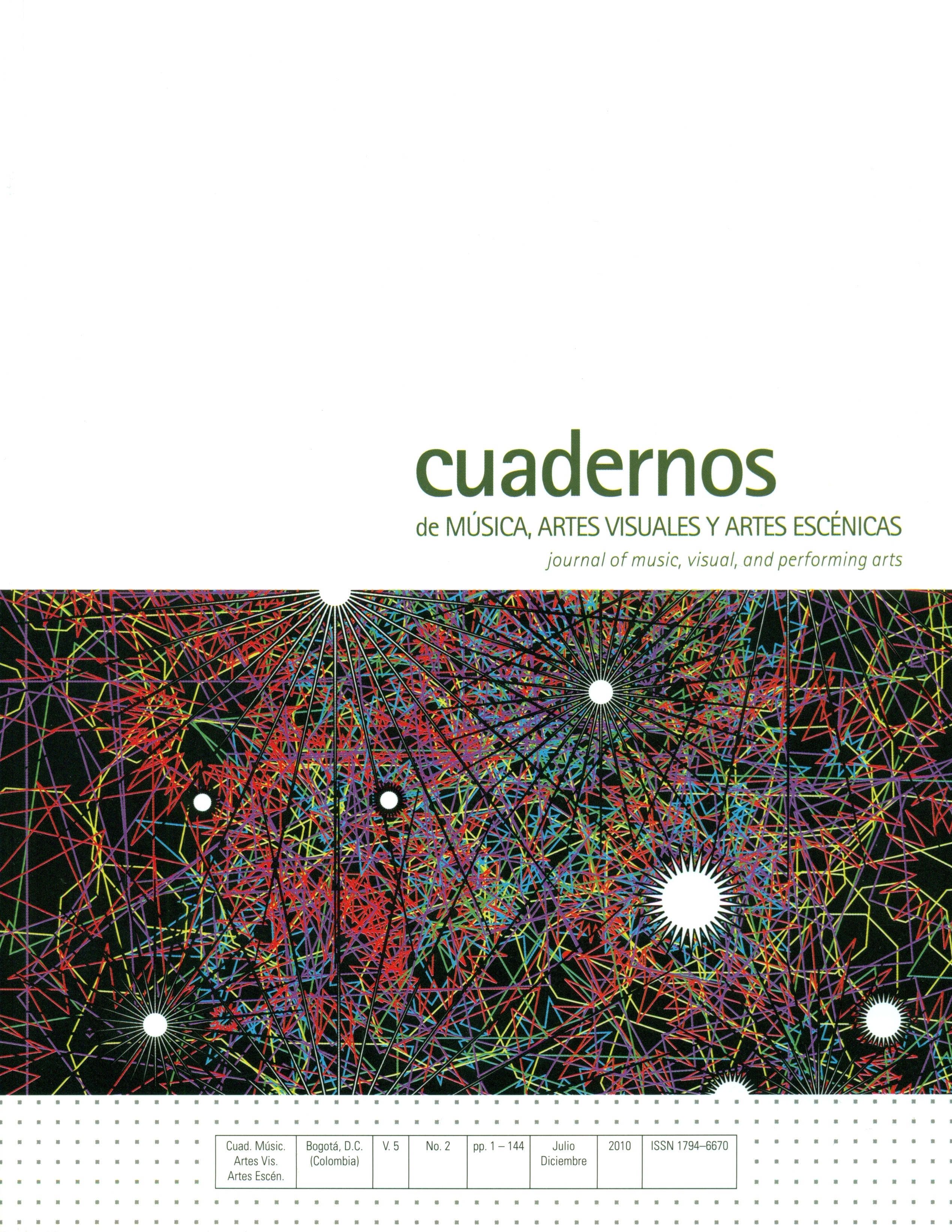Abstract
Este escrito plantea una reflexión en torno a la importancia de permitir el ingreso de los territorios culturales y estéticas musicales juveniles al aula de apreciación musical como estrategia pedagógica de construcción de significación, sentido e identidad. Se describe el impacto de la música entendida como espacio vivencial sobre el desarrollo de la identidad juvenil. Posteriormente, se recoge la propuesta de Lucy Green de integrar elementos del aprendizaje informal al aula de música. Igualmente, se plantea la idea de desarrollar en los estudiantes una musicalidad crítica que comprenda las especificidades, reglas y capitales en juego de los diversos campos de producción musical. También, se aborda la noción de encuentro de Keith Swanwick como práctica pedagógica fundamentada en la autonomía y la inclusión de las opciones individuales. Finalmente, se exponen algunas experiencias de proyectos concretos realizados en la clase de apreciación musical del Programa Juvenil de Música de la Pontificia Universidad Javeriana.This journal is registered under a Creative Commons Attribution 4.0 International Public License. Thus, this work may be reproduced, distributed, and publicly shared in digital format, as long as the names of the authors and Pontificia Universidad Javeriana are acknowledged. Others are allowed to quote, adapt, transform, auto-archive, republish, and create based on this material, for any purpose, provided the authorship is duly acknowledged, a link to the original work is provided, and it is specified if changes have been made. Pontificia Universidad Javeriana does not hold the rights of published works and the authors are solely responsible for the contents of their works; they keep the moral, intellectual, privacy, and publicity rights.
Approving the intervention of the work (review, copy-editing, translation, layout) and the following outreach, are granted through an use license and not through an assignment of rights. This means the journal and Pontificia Universidad Javeriana cannot be held responsible for any ethical malpractice by the authors. As a consequence of the protection granted by the use license, the journal is able to publish retractions or to correct information already published. Publishing contents in this journal does not generate royalties for contributors.


